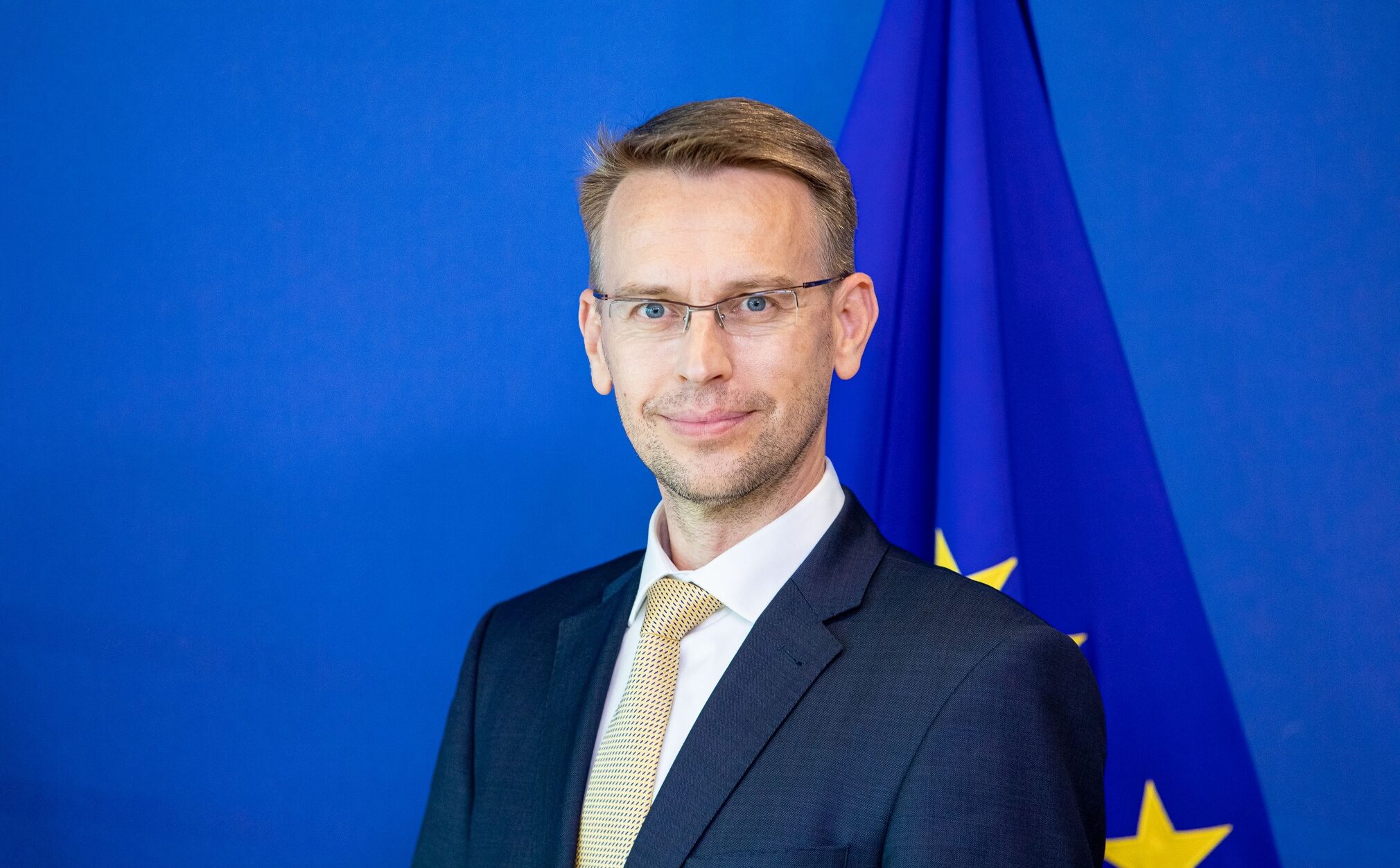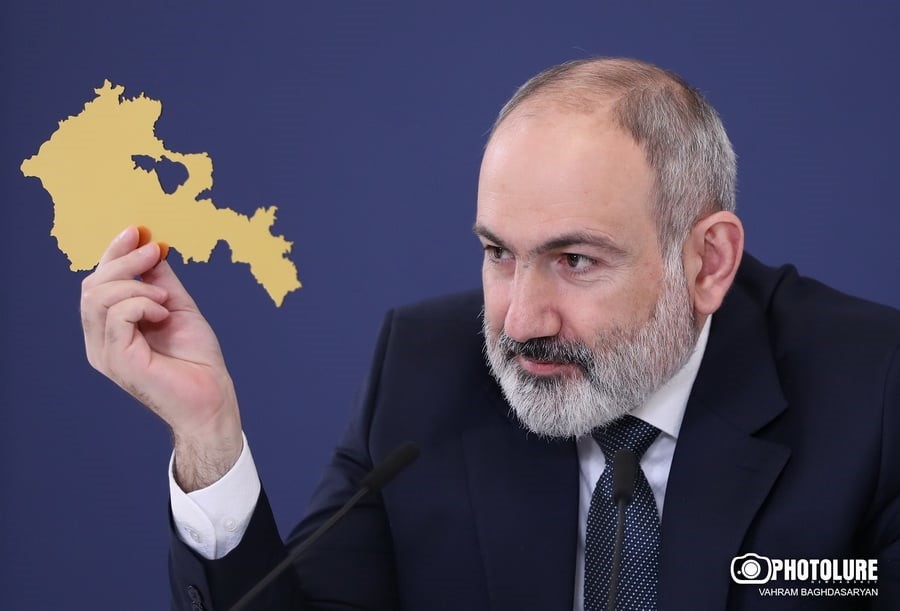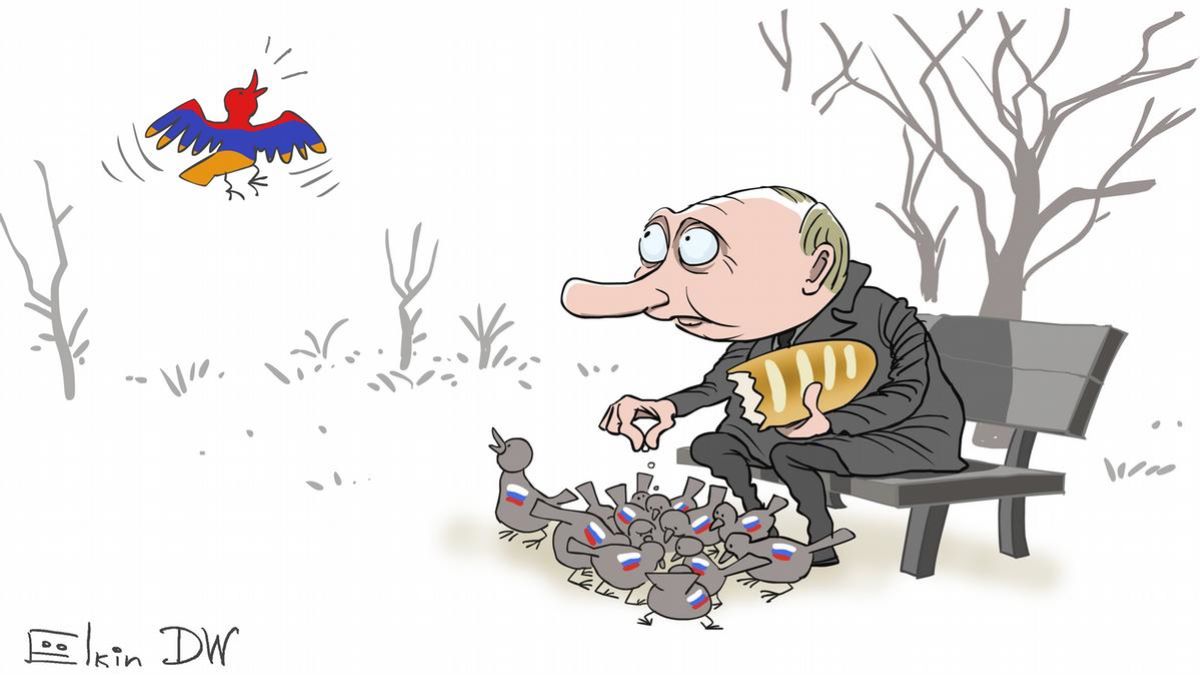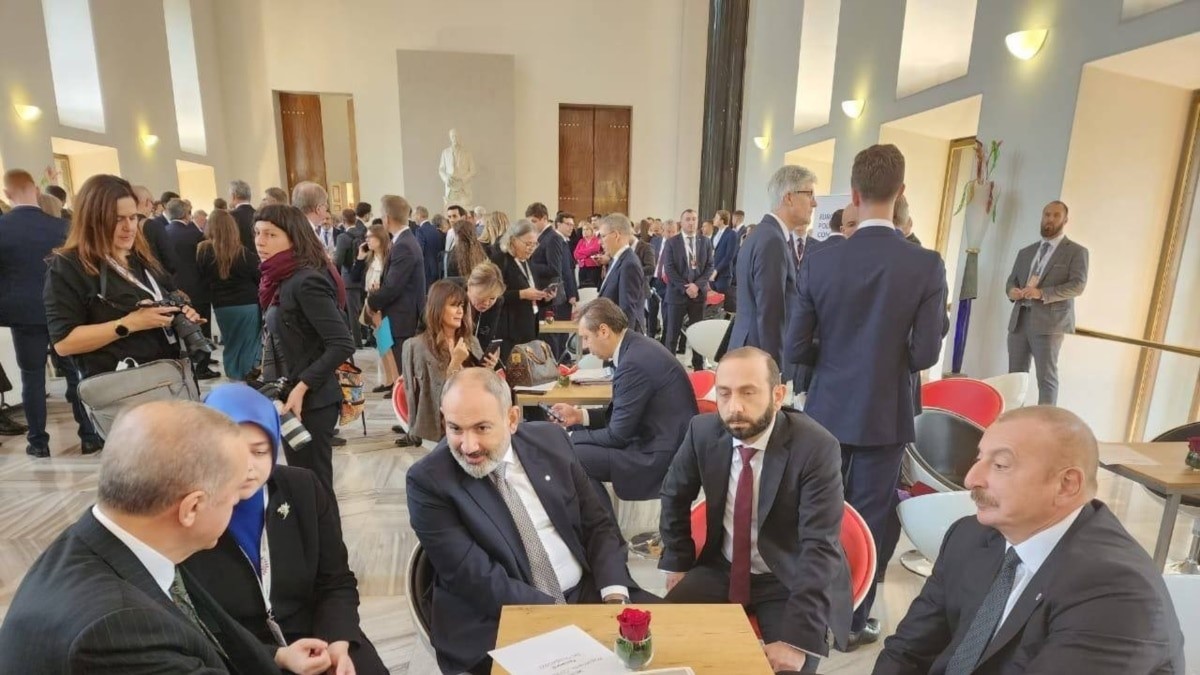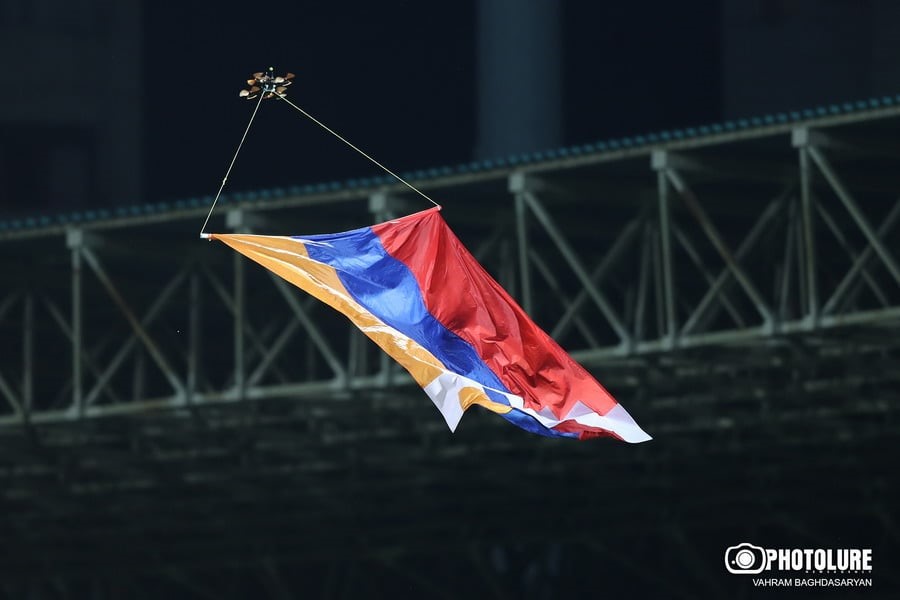"Armenia does not create dividing lines in the region" - Pashinyan
Pashinyan’s speech in Parliament
“Some external players, driven by their own political or military objectives, are attempting to distort Armenia‘s foreign policy and promote false narratives about the creation of divisive lines in the region,” stated Nikol Pashinyan in Parliament, seemingly referring to Russia.
He mentioned that his government is implementing a policy of diversifying external relations across all directions. In doing so, they aim for the development of relations not only with the West but also with India, China, South Korea, and Japan. Thus, the focus is not on creating divisive lines.
These are the main points from prime minister Pashinyan’s speech outlining Armenia’s policy of diversifying its external relations.
- “Armenia is Europe, period”: Discussion on Euro-Integration in Parliament
- “Vague and meaningless”: the response of the Russian CSTO bloc to Yerevan’s request
- “Baku’s recent moves’ motives are Middle East-bound.” Opinion from Yerevan
“The EU and the USA won’t solve our problems for us”
Pashinyan spoke at length about the meeting in Brussels on April 5 in the Armenia-US-EU format. According to him, it was “not about other countries solving Armenia’s problems.” He notices expectations in the country that “friends, allies will come and solve them,” but he urges to realize that one needs to solve their problems themselves:
“This is the psychological formula of sovereignty. The opposite logic is the logic of a vassal, an outpost. To have an independent state, we must, first of all, get out of this logic.”
He called the meeting in Brussels unprecedented, marking a new level of relations. He emphasized once again that security issues were not discussed:
“You must agree, the European Union and the USA would never have agreed to provide economic and political support to Armenia if they considered our policy aggressive. All attempts by Baku to present the Republic of Armenia as a state conducting aggressive policies in the West have been scattered, nullified.”
The meeting, according to Pashinyan, proved that the EU and the USA express “political support” for the sovereignty, democracy, and territorial integrity of Armenia, as well as for the stable, peaceful, and secure future of Armenia and the region.
He particularly emphasized that European partners and the USA highly appreciate the democratic reforms of the Armenian government and the progress made in the fight against corruption:
“They stressed that they intend to provide additional support to mitigate risks, diversify trade, and strengthen economic and institutional resilience. Partners also welcomed the ‘Crossroad of Peace’ project [Armenian government’s proposal to unlock regional communications].“
“The term of the EU observation mission may be extended”
Pashinyan mentioned that there are talks underway regarding the potential extension of the EU mission’s monitoring activities along the border with Azerbaijan for an additional 2 years. He reminded that this civil mission was deployed along the Armenian-Azerbaijani border following the four-party meeting in Prague on October 6, 2022. These are the talks involving the leader of Azerbaijan, the head of the European Council, and the President of France.
The prime minister emphasized that after the deployment of European observers along Armenia’s border, the EU and its partners have a source of objective information about the situation:
“And this information makes it clear that Armenia is sincerely committed to a peaceful agenda, the Prague agreements, and is by no means the aggressive side of this story.”
“Accusations against France are unacceptable”
As the prime minister stated, the agreements reached at the four-party meeting in Prague are of paramount importance for establishing a stable and peaceful South Caucasus. Pashinyan reiterated the “extremely important decisions” that were made:
“Armenia and Azerbaijan recognized each other’s territorial integrity and sovereignty in accordance with the 1991 Alma-Ata Declaration. Armenia and Azerbaijan agreed to demarcate between the two countries based on the Alma-Ata Declaration.”
At this meeting, decisions were made that, according to Pashinyan, constitute a realistic and robust political and legal basis for establishing peace between Armenia and Azerbaijan. And “the role of French president Emmanuel Macron in achieving these agreements is simply enormous.”
In this regard, the Armenian prime minister emphasized that “attacks on Macron and France are incomprehensible and unacceptable” to himself and the Armenian government:
“If Macron is criticized for providing a long-term mandate for the EU civilian mission, then this decision, like all others, was made by consensus, that is, by all EU members.“
“One of the external challenges is Azerbaijan”
Pashinyan considers the regulation of relations with neighbors as the pledge, the key to preserving Armenia’s sovereignty and statehood. He says there are various challenges:
“One of such challenges is, of course, the ongoing aggressive policy of Azerbaijan. It is expressed through rhetoric, border provocations, continued occupation of Armenia’s sovereign territories, acquisition of weapons worth tens of millions, and so on.”
According to the prime minister, the outraged statements from Baku about the reform of the Armenian army, the formation of new defense structures, and the acquisition of weapons are also part of this policy:
“In other words, what is Azerbaijan’s approach? Do they believe that Armenia should not have an army to defend the country? I have said, and I want to emphasize again, that having a capable army is the sovereign right of every country.”
He reminded that Yerevan has made numerous proposals, including the creation of a mechanism for mutual control over armaments. However, all of them remained unanswered.
“Now we hope to receive a positive response to the 8th edition of the peace treaty, which was handed over to Azerbaijan on March 14,” Pashinyan said.
“Yerevan is not against starting the delimitation process with the Tavush region”
Commenting on the border delimitation process with Azerbaijan, the prime minister stated that Yerevan is not against starting this process with four villages in the Tavush region and the Gazakh district:
“I hope that we will come to an agreement, if not fully, then at least partially. And this will significantly change the atmosphere in our region.”
Does starting the delimitation from this area guarantee security? Will it prevent new Azerbaijani military incursions into Armenian territory? Will the neighboring country’s troops return to their original positions to free the occupied vital territories of 31 Armenian villages? Pashinyan asked himself these questions and answered them negatively. But he emphasized that refusing to conduct delimitation in this area contains “negative guarantees”:
- Security threats will continue to grow,
- there will be new incursions into sovereign Armenian territory,
- Azerbaijan will not return vital territories to Armenian villages.
“Neutralizing these negative guarantees,” the prime minister explained the need for delimitation in this area.
“We have not made a single wrong step in our relations with Russia”
Pashinyan assured that there is not a single point where the Russian Federation could accuse Armenia of failing to fulfill its obligations. He immediately added that, in contrast, there are numerous cases of Russia failing to fulfill its obligations.
He noted that “interstate relations are going through difficult times.” However, he stated that their significance for Armenia’s statehood, sovereignty, security, and economy cannot be underestimated:
“I want to emphasize that we do not want to argue with the Russian Federation not only because we lack the opportunity and strength to do so, but also because we value the enormous positive aspects that have existed and continue to exist in our relationship.”
He believes that there is a transition “from historical relations to real ones,” based on an assessment of reality.
“And we are ready for such work with Russia,” assured the prime minister.
“We do not juxtapose relations with the West and Iran”
Pashinyan also emphasized the importance of Armenia’s good neighborly relations with Iran:
“They are based on natural interests. And we have never opposed the development of our relations with the West, nor do we oppose and will not oppose our relations with Iran. At the same time, we have never opposed our relations with Iran, nor do we oppose and will not oppose our relations with the West.”
He assured that this is the “political line” of Yerevan.
“The opening of the Armenian-Turkish border will be an epoch-making event”
“We are in a state of anticipation regarding our relations with Turkey. We await the implementation [by Turkey] of the agreements already reached and officially recorded. This includes the opening of the land border between Armenia and Turkey for citizens of third countries and holders of diplomatic passports,” said Nikol Pashinyan.
He added that the opening of the Armenian-Turkish border would be an epoch-making event for the entire region. Therefore, Yerevan will continue its efforts in this direction.
“The delimitation process between historical and present-day Armenia”
According to the prime minister, “historical Armenia and present-day Armenia are not only incompatible but often contradict each other, posing serious threats to each other.” He says that for a long time, he himself was a carrier of the “psychology and tradition of historical Armenia.” However, in 2022, he realized that the key factor in ensuring the country’s security was being ignored. And that is the internationally recognized territory of the Republic of Armenia:
“After the September 2022 war, I became unequivocally and finally convinced that recognizing and consolidating the internationally recognized territory of Armenia could become an additional and decisive factor in ensuring the short-term, medium-term, and long-term security of our country.”
From that moment on, according to Pashinyan, he began a political and psychological process, which he himself called the “process of delimitation between historical and present-day Armenia.” He believes that this process is much more painful than delimitating the border between Armenia and Azerbaijan.
“Historical Armenia does not recognize the territorial integrity of present-day Armenia because it is a limiting factor for it. However, historical Armenia finds sympathy among a number of countries that have claims to the sovereignty, independence, and territory of present-day Armenia,” he said.
Based on these arguments, Pashinyan intends to focus “on serving the interests” of present-day Armenia:
“Otherwise, we will not be able to solve security problems and neutralize external challenges. Because we will have a constant source of generating external threats within ourselves.”
Present-day Armenia, as the prime minister declared, is a country with internationally recognized territory of 29,743 square kilometers. And, in his opinion, it is time “to acknowledge the territorial integrity of the Republic of Armenia ourselves.”











